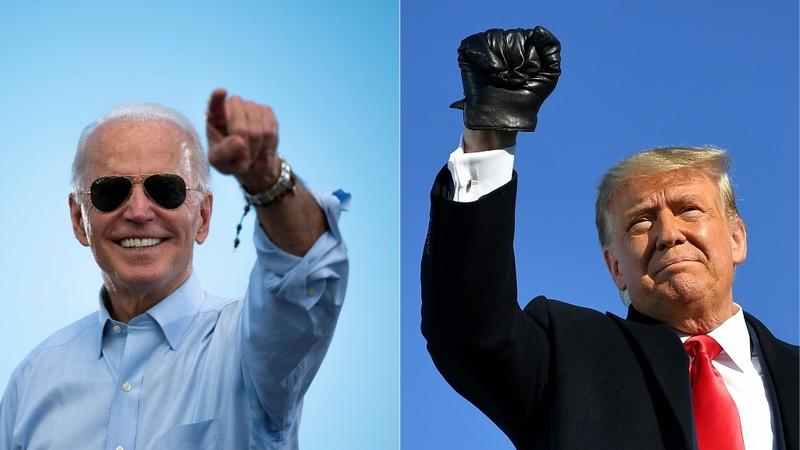Why Trump will continue to influence US foreign policy
https://arab.news/6yzbj

Assessments of what the Joe Biden-Kamala Harris team might bring to US foreign policy are now well underway. Conventional analysis has much to commend it, and European capitals will endorse that. They will welcome a return to civility in discourse. If there are disagreements over policies, as will always be the case, they will not be characterized by unfortunate reports of harshness or disdain. Opportunities for collective action, from the World Health Organization to the UN, will be offered and decided on merit, rather than pre-judged for rejection simply because they are collaborative. The importance of NATO, particularly on its eastern flank, will not have to be restated.
Such conventional analysis also rejects any simplistic notions of a return to pre-2016 US foreign policy. The world has moved on. Politics follows facts on the ground, and many of the facts are different to the Obama era.
So we are holding our breath. However, if some strands of policy could be ascertained in the run-up to the election, such as a return to the climate change agreements or the acceptance of the Abraham Accords, it could be worth reflecting that some policies might well now be influenced rather more by the losing candidate than we would have imagined.
The truth is that President Donald Trump recorded a historically huge vote and only missed out narrowly in key swing states. This is bound to weigh on minds in the White House because task No. 1 is to “fix the USA” and win a second term, rather than set out foreign policy. You start thinking about the next election as you walk to the podium to make your acceptance speech. And, if you have not won by that much, you are already thinking about why that is the case and what you are going to do about it.
On a recent webinar, I heard a senior Democrat address this. He reminded a Middle East audience not simply of the size of the Trumpian vote, but also the fact that Trump himself did not spring up out of nowhere and that the questions he asked of America and its policies remain unanswered. Just why was the region involved in so many forever wars, and why were US troops so vital to them?
I think we would be wise to recognize that this frames the familiar dilemma of US Middle East policy in a domestic context, which, as with everything else, is different to pre-2016. What the sizable Trump vote tells us is that this is the base from which a Republican candidate in 2024 will be working; that the Democrats will have to take it seriously right from the start; and that it has a foreign policy dimension that will need careful navigation.
The new White House will not need telling that US engagement in the Middle East remains vital for those who accept that vacuums are always filled and, if values, interests and allies are to be supported, showing up is key. But it also knows it cannot afford to do so in a way that would allow those difficult questions to rise to the top of the US domestic agenda, should anything go wrong. Equally, the persistent modern dilemma of the region — how to encourage US engagement as a security reassurance without it appearing to be “foreign interference” — needs to be resolved without risking either a local or a US popular backlash.
Trump’s historically huge vote is bound to weigh on minds in the White House.
Alistair Burt
The observer in a European capital, therefore, recognizes that, while welcoming the change, it is by no means “with one bound, we are free,” as in old superhero films. None of this is insurmountable, however. The Middle East can recognize that US engagement may still be wary, but it should be more consistent and will stick to agreed parameters that will undoubtedly acknowledge the growing powers in the region. For example, there is no return to the Iran nuclear deal as it stood and without the involvement of regional states who did not sit around the original table. Nor is it unlikely the new US administration will use the Abraham Accords more collaboratively than exclusively, in conjunction with Arab states and Europe, to secure the just resolution of issues between the Palestinian people and Israel, delivering the peace of economic opportunity and security that has been so long-desired.
A smooth handover is essential for the new US leadership, which will be aware that the previous administration has, in some measure, left an agenda of its own.
- Alistair Burt is a former UK Member of Parliament who has twice held ministerial positions in the Foreign and Commonwealth Office — as Parliamentary Under Secretary of State from 2010 to 2013 and as Minister of State for the Middle East from 2017 to 2019. Twitter: @AlistairBurtUK









































